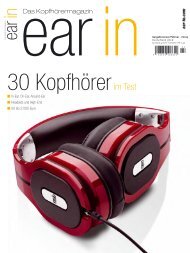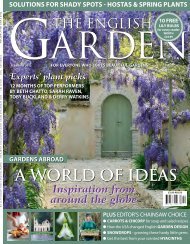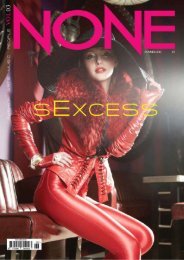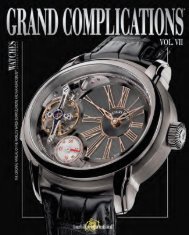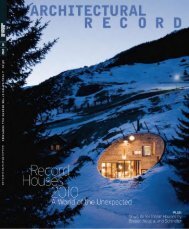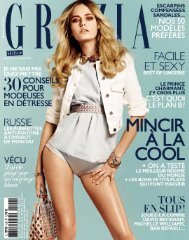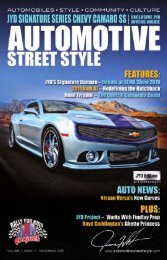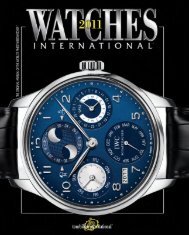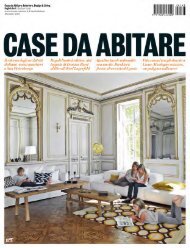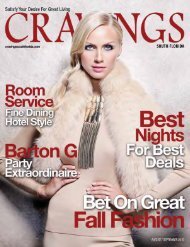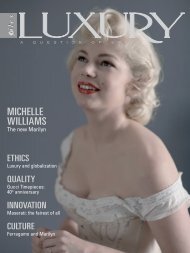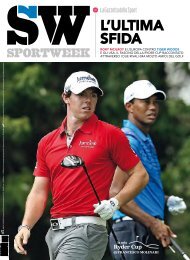THE ROUGH GUIDE to - Parallels Plesk Panel
THE ROUGH GUIDE to - Parallels Plesk Panel
THE ROUGH GUIDE to - Parallels Plesk Panel
You also want an ePaper? Increase the reach of your titles
YUMPU automatically turns print PDFs into web optimized ePapers that Google loves.
Worth seeking out before you go is the<br />
Berndtson and Berndtson map, which is<br />
laminated, and the Periplus Beijing map,<br />
which has all the street names, including<br />
those of many hu<strong>to</strong>ngs (alleyways), in<br />
English. Whatever map you get, you can<br />
gauge if it’s really up <strong>to</strong> date by whether it<br />
includes the newer subway lines.<br />
Money<br />
Chinese currency is formally called the yuan<br />
(¥), more colloquially known as renminbi<br />
(RMB) or kuai; a yuan breaks down in<strong>to</strong> units<br />
of ten jiao (also called mao). One jiao is<br />
equivalent <strong>to</strong> ten fen, though these are<br />
effectively worthless – you’ll only ever be<br />
given them in official currency transactions,<br />
or see the tiny notes folded up and used <strong>to</strong><br />
build model dragons or boats. Paper money<br />
was invented in China and is still the main<br />
form of exchange, available in ¥100, ¥50,<br />
¥20, ¥10, ¥5, and ¥1 notes, with a similar<br />
selection of jiao. At the time of writing the<br />
exchange rate was approximately ¥15 <strong>to</strong> £1,<br />
¥8 <strong>to</strong> $1 and ¥10 <strong>to</strong> €1.<br />
China is suffering from a rash of counterfeiting.<br />
Check your change carefully, as the<br />
locals do – hold 100s and 50s up <strong>to</strong> the light<br />
and rub them; fakes have no watermarks<br />
and the paper feels rougher.<br />
Banks and ATMs<br />
Most ATMs accept foreign bankcards,<br />
connected <strong>to</strong> the Cirrus, AmEx, Visa, Plus<br />
and Mastercard networks. Some banks<br />
charge transaction fees (highest is the Bank<br />
of China, at ¥25), but most do not. There’s<br />
usually a maximum of ¥2000 in a single<br />
withdrawal, and a maximum per day limit of<br />
between ¥3000 and ¥5000, depending on<br />
your card. For a list of ATMs in Beijing, see<br />
W www.moveandstay.com/beijing/guide<br />
_banks.asp.<br />
Banks are usually open from Monday <strong>to</strong><br />
Friday (9am–5pm), though some branches<br />
open on weekends <strong>to</strong>o. All are closed on<br />
New Year’s Day, National Day, and for the<br />
first three days of the Chinese New Year,<br />
with reduced hours for the following eleven<br />
days. The Commercial Bank (Mon–Fri<br />
9am–noon & 1–4pm) in the CITIC Building,<br />
19 Jianguomenwai Dajie, next <strong>to</strong> the<br />
Friendship S<strong>to</strong>re, offers the most comprehensive<br />
exchange service: here, you can<br />
change money and travellers’ cheques, or<br />
use most credit cards <strong>to</strong> obtain cash<br />
advances or buy American dollars (if you<br />
present exchange certificates).<br />
All branches of the Bank of China will give<br />
cash advances on Visa cards. Their main<br />
branch is at 108 Fuxingmennei Dajie<br />
(Mon–Fri 9am–noon & 1.30–5pm), off<br />
Chaoyangmen Dajie, just north of the<br />
International Post Office. You’ll find other<br />
branches in the SCITECH Plaza (Mon–Fri<br />
9am–noon & 1–6.30pm), the China World<br />
Trade Centre (Mon–Fri 9am–5pm, Sat 9am–<br />
noon), the Sun Dong’an Plaza (Mon–Fri<br />
9.30am–noon & 1.30–5pm) and the<br />
Lufthansa Centre (Mon–Fri 9am–noon &<br />
1–4pm), among others.<br />
Credit cards and wiring money<br />
Major credit cards, such as Visa, American<br />
Express and MasterCard, are accepted only<br />
at big <strong>to</strong>urist hotels and restaurants, and by<br />
a few <strong>to</strong>urist-oriented shops. It’s possible <strong>to</strong><br />
wire money <strong>to</strong> Beijing through Western<br />
Union (Wwww.westernunion.com); funds<br />
can be collected from one of their agents in<br />
the city, in post offices and the Agricultural<br />
Bank of China.<br />
Opening hours and public<br />
holidays<br />
Offices and government agencies are<br />
open from Monday <strong>to</strong> Friday, usually from<br />
8am <strong>to</strong> noon and then from 1pm <strong>to</strong> 5pm;<br />
some open on Saturday and Sunday<br />
mornings, <strong>to</strong>o. Shops are generally open<br />
from 9am <strong>to</strong> 6pm or 7pm Monday <strong>to</strong><br />
Saturday, with shorter hours on Sunday;<br />
large shopping centres are open daily and<br />
don’t close till around 9pm. Museums are<br />
either open all week or are shut on one day,<br />
usually Monday.<br />
Public holidays (see p.30) have little effect<br />
on business, with only government departments<br />
and certain banks closing. However,<br />
on New Year’s Day, during the first three<br />
days of the Chinese New Year, and on<br />
National Day, most businesses, shops and<br />
sights will be shut, though some restaurants<br />
stay open.<br />
BASICS |<br />
Travel essentials<br />
41



